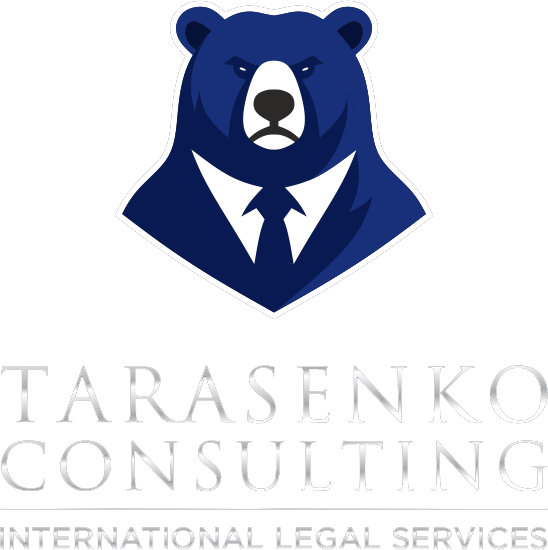Legal protection for foreign nationals and businesses in Russia
How to Spot an Online Romance Scam

What swindlers tell to trick the victim into sending money
Romance scams targeting foreigners on the Net - especially men, although both sexes can experience this - are increasingly common in Russia. Scammers, often posing online as attractive women, quickly build emotional connections and then ask for money under false pretenses - passports, visas, or emergency situations. Showing fake documents isn’t a problem for them either.
Such fraudsters typically mirror the victim’s interests and lovebomb him to cloud his judgment. Criminals take advantage of the fact Russian banks are currently sanctioned - and indeed, it’s now practically impossible to receive funds from Europe or North America through banks. Accordingly, they ask to make the transfer using more complex methods: through “relatives” in a neighboring country or to a crypto wallet.
Common Lies Con Artists Tell:
• Travel documents: They ask about $400–$1,000 for a passport or visa that costs much less - the beauty promises to meet with you in your country.
• Family emergencies: Fake illnesses or medical bills involving relatives.
• Airport issues: Sudden fines, debts, or arrests that require urgent payment. Favorite pretext: your loved one has been arrested and fined for transporting an antique icon or other expensive item.
• Loans and mortgage: You may be asked for money to cover fines, debts, mortgage or fees that are supposedly preventing her from leaving Russia.
• Frozen account: The bank blocked your girlfriend’s account as soon as she tried to transfer money back to you. Or as soon as she received money from you.
• Military conscription: Your love interest is supposedly to be drafted into the army, and in order to avoid this, you should pay. Even girls use this excuse, although they’re not subject to conscription.
If suspicion arises, con women may fake an arrest - or even their own death - to escape scrutiny. They also often say they live in the disputed territories of Russia and Ukraine - this makes it easier to substantiate their story and "cover their tracks" if necessary.
🚩 Red Flags:
• Relationship progresses too fast.
• Consistent money requests.
• Excuses to avoid meeting in real life.
• Photos that appear in reverse image searches under another name.
• Your friend refers to the fact they have an aunt or uncle in Georgia, Armenia or Kazakhstan who can transfer money to her.
What You Can Do:
• Ideally, don’t send money to someone you haven’t met in person.
• If you ultimately decided to send funds to your online friend, ask her for her internal passport (Russian internal ID) and download other documents/photos she sent you - we will check her.
• Keep records of any transactions.
• Report the crime to the authorities if you fell prey to deception. You may be embarrassed, but a proper report can help stop the scammer and possibly recover your money. Should this happen, don’t hesitate to reach out to our team.
Such fraudsters typically mirror the victim’s interests and lovebomb him to cloud his judgment. Criminals take advantage of the fact Russian banks are currently sanctioned - and indeed, it’s now practically impossible to receive funds from Europe or North America through banks. Accordingly, they ask to make the transfer using more complex methods: through “relatives” in a neighboring country or to a crypto wallet.
Common Lies Con Artists Tell:
• Travel documents: They ask about $400–$1,000 for a passport or visa that costs much less - the beauty promises to meet with you in your country.
• Family emergencies: Fake illnesses or medical bills involving relatives.
• Airport issues: Sudden fines, debts, or arrests that require urgent payment. Favorite pretext: your loved one has been arrested and fined for transporting an antique icon or other expensive item.
• Loans and mortgage: You may be asked for money to cover fines, debts, mortgage or fees that are supposedly preventing her from leaving Russia.
• Frozen account: The bank blocked your girlfriend’s account as soon as she tried to transfer money back to you. Or as soon as she received money from you.
• Military conscription: Your love interest is supposedly to be drafted into the army, and in order to avoid this, you should pay. Even girls use this excuse, although they’re not subject to conscription.
If suspicion arises, con women may fake an arrest - or even their own death - to escape scrutiny. They also often say they live in the disputed territories of Russia and Ukraine - this makes it easier to substantiate their story and "cover their tracks" if necessary.
🚩 Red Flags:
• Relationship progresses too fast.
• Consistent money requests.
• Excuses to avoid meeting in real life.
• Photos that appear in reverse image searches under another name.
• Your friend refers to the fact they have an aunt or uncle in Georgia, Armenia or Kazakhstan who can transfer money to her.
What You Can Do:
• Ideally, don’t send money to someone you haven’t met in person.
• If you ultimately decided to send funds to your online friend, ask her for her internal passport (Russian internal ID) and download other documents/photos she sent you - we will check her.
• Keep records of any transactions.
• Report the crime to the authorities if you fell prey to deception. You may be embarrassed, but a proper report can help stop the scammer and possibly recover your money. Should this happen, don’t hesitate to reach out to our team.
Watch the videos of how to avoid a scam

Find out more about romance scammers from Russia
Online Romance Scam in Russia
Top 10 Lies Online Romance Scammers Tell
Russian law firm specializing in protection of foreign nationals under Russian law
The Russian attorney speaks English, without a translator

We will protect your legal rights at any stage of a case
01
The lawyer is independent of government authorities
02
The lawyer's experience is more than 20 years of real legal practice
03
We can consider an installment payment plan
04
An urgent visit of the lawyer to any part of Russia is possible
05
Our lawyers achieve good results through close attention and dedication
06
Reviews from google maps in Moscow

Reviews from real customers


The cost of legal services is specified in the agreement and does not change
We are committed to 100% attorney client's confidentiality
Refunds for unused prepaid services are provided in accordance with the terms of the legal services agreement
We provide transparent terms of cooperation and detailed written agreements




The cost is fixed in the legal agreement
Refunds for unused prepaid services
Complete confidentiality
Watch the video reviews about our work

A professional lawyer must not only perfectly know the law, but also be an honest person




Let the independent lawyer and his team
solve your problems
solve your problems
For over 20 years, we specialize in protection of foreigners in criminal and administrative cases
20
80
28
years of the lawyer's experience
- the number of countries from which clients have contacted us
Representatives in more than 28 regions of the Russian Federation
500
successful cases
Diplomas and certificates





Original Diploma "Lawyer, Majoring in Jurisprudence"
Original Diploma "Specialist in Philology; Teacher of English Language and Literature; Professional Communication Translator"
Translation of Diploma "Lawyer, Majoring in Jurisprudence"
Translation of Diploma "Specialist in Philology; Teacher of English Language and Literature; Professional Communication Translator"
Moscow lawyer in social networks

Subscribe to our groups in social networks
Useful articles and news

Legal assistance and useful information
Our Contacts

Moscow Lawyer`s office
Address:
Moscow, Zubovskiy bulvar, building 4, room 308 ("Park Cultury" metro station)
Email:
legalsolutions@inbox.ru
Call the phone:
+7(909)961-19-09
Moscow, Zubovskiy bulvar, building 4, room 308 ("Park Cultury" metro station)
Email:
legalsolutions@inbox.ru
Call the phone:
+7(909)961-19-09
Kemerovo Lawyer`s office
Address:
Russia Federation, Kemerovo Region, Kemerovo, Dzerdginskogo street, 23
Email:
legalsolutions@inbox.ru
Call the phone:
+7(909)961-19-09
Russia Federation, Kemerovo Region, Kemerovo, Dzerdginskogo street, 23
Email:
legalsolutions@inbox.ru
Call the phone:
+7(909)961-19-09
Sochi Lawyer`s office
Address:
Russia Federation, Sochi, Gorky Lane, 22 (Sokol Business Center).
Email:
legalsolutions@inbox.ru
Call the phone:
+7(909)961-19-09
Russia Federation, Sochi, Gorky Lane, 22 (Sokol Business Center).
Email:
legalsolutions@inbox.ru
Call the phone:
+7(909)961-19-09
Order a call
Write your contacts and we will call back to you to answer all your questions
100% data protection, according to Federal Law #152. Pressing the button, you agree to processing of personal data and agree with privacy policy
Consult for free
Write your contacts and we will call back to you to answer all your questions
100% data protection, according to Federal Law #152. Pressing the button, you agree to processing of personal data and agree with privacy policy

















